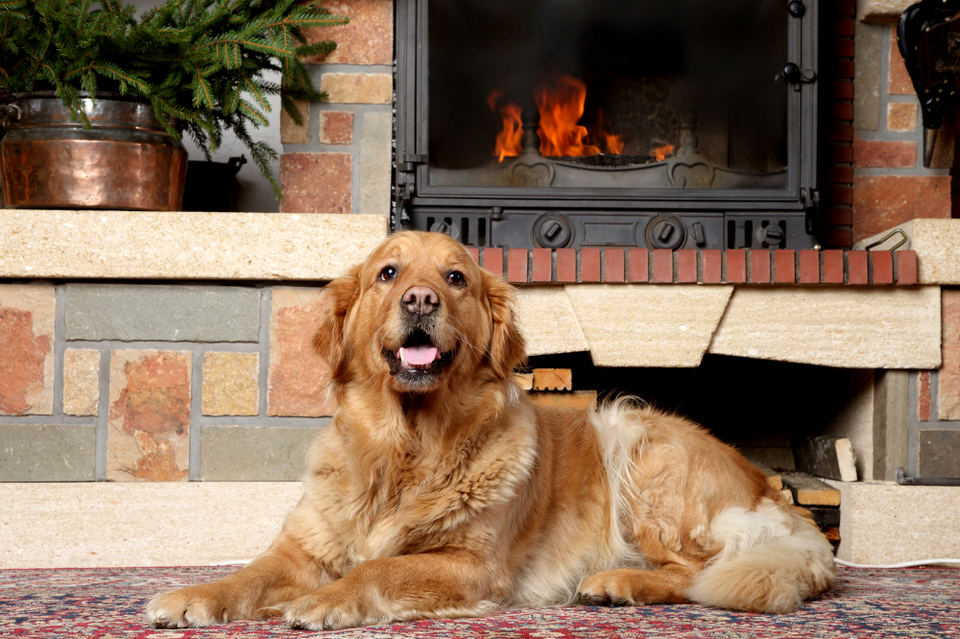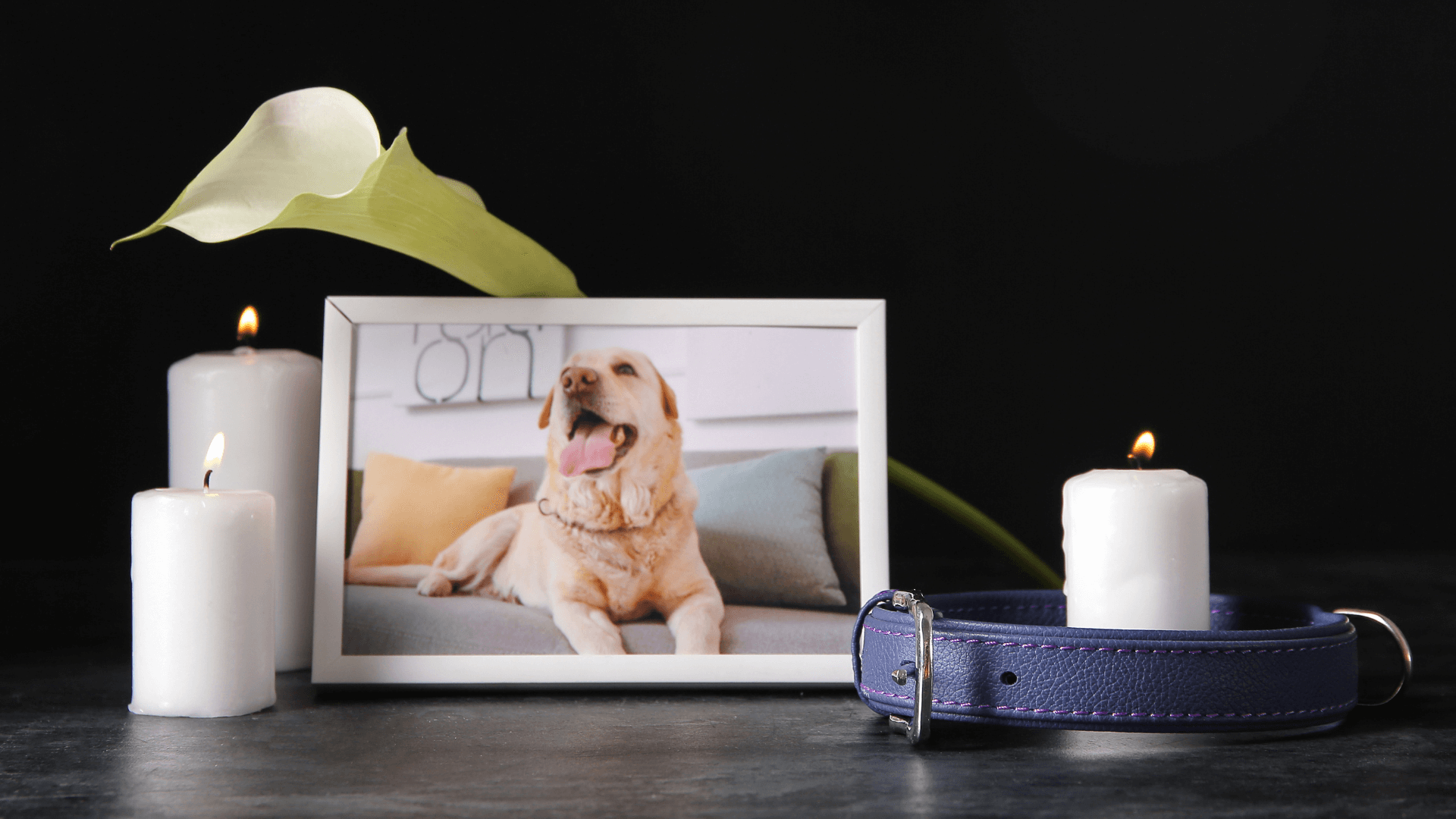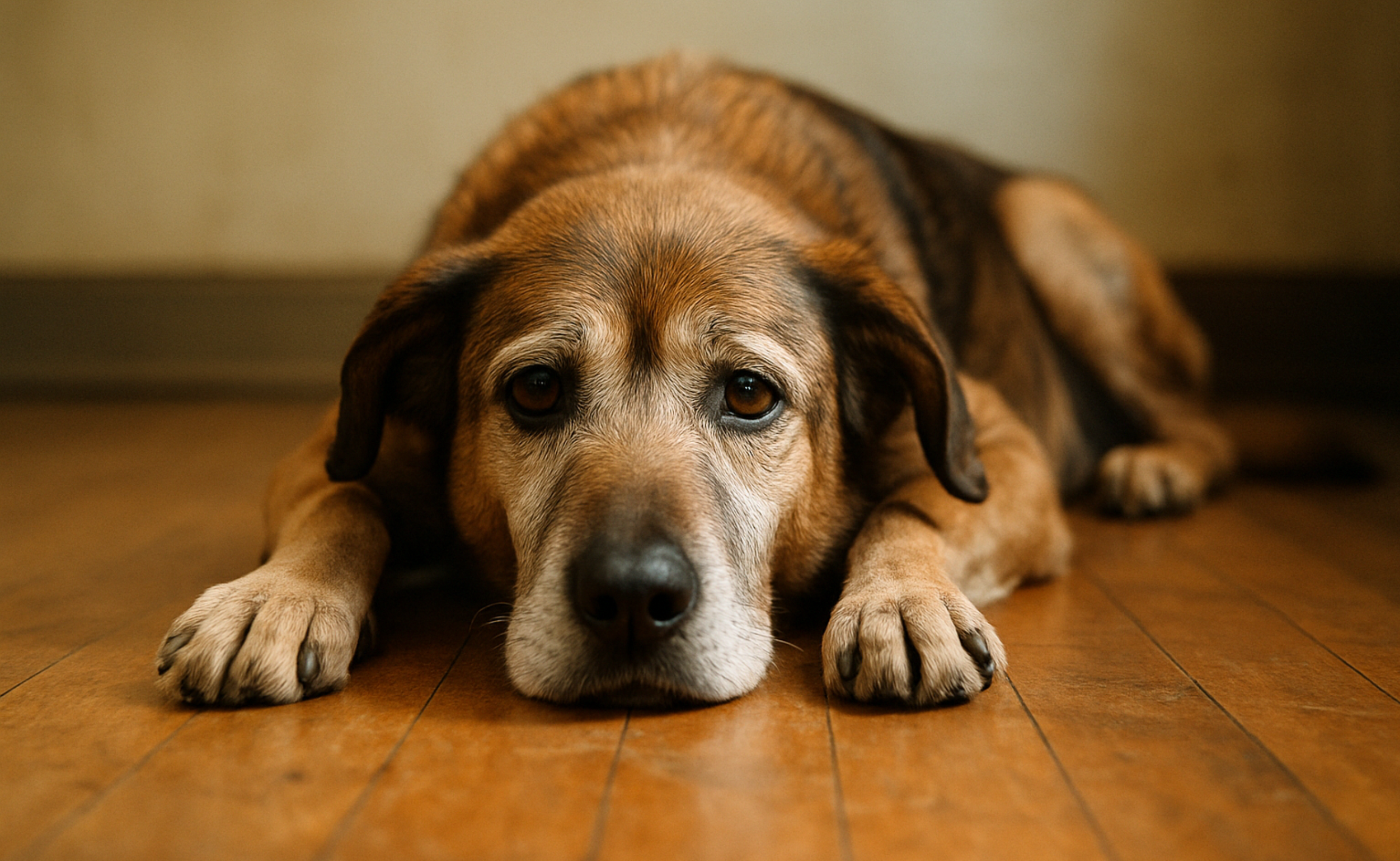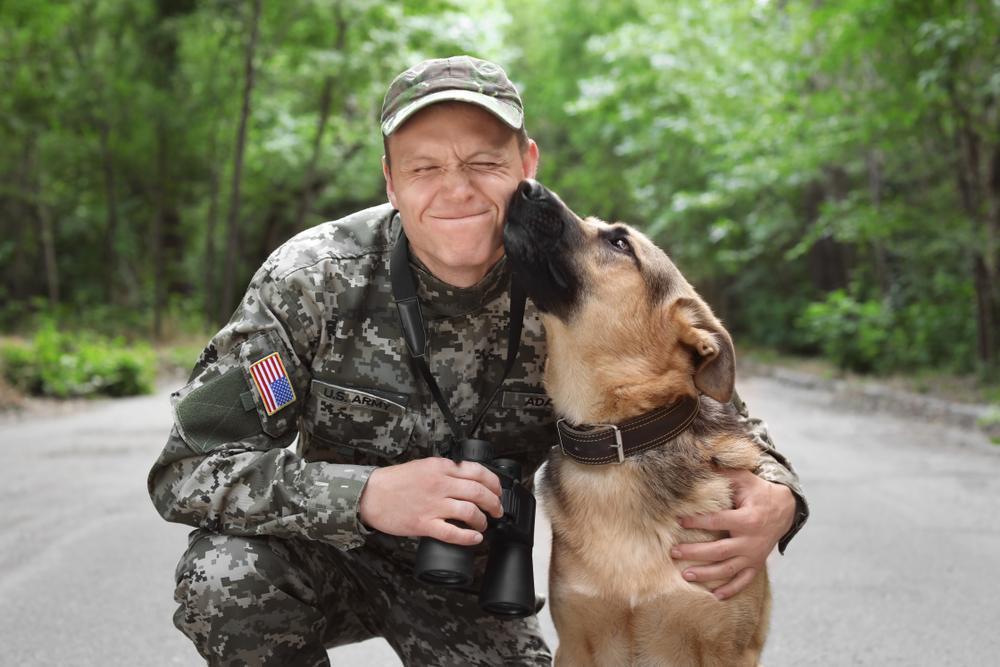
The Ultimate Guide to Pet Friendly Fireplace Safety

As the weather cools and if you have a fireplace in your home, now is a very tempting time to throw a few logs on the andirons or fire grate, toss in some kindling or a starter log, then light a match or turn on the gas.
There can be something very comforting about a roaring fire on a cold autumn or winter day: it provides heat, and the dancing flames can be hypnotic. There’s also the faint smell of burning would, which can be nostalgic, and the varied sounds of crackling logs as they burn.
But fire is also very dangerous — something that every paw parent can understand, but which our fur kids cannot. That’s why we have to take extra precautions if we have pets around the house.
Creating a “danger zone”
Long before you ever light the fireplace, you have to create an invisible boundary around it for your pets and make them understand that they’re not allowed to go anywhere near the hearth, the log stand, or the tools.
Early obedience training can be a big help in this regard, but if that ship has already sailed, you can still make the fireplace off-limits. Teach the “leave it” command, and designate a spot where your dog should be while everyone is enjoying the fire — either a dog bed, crate, or comfy blanket located a safe distance away, but where they can see the people.
Another surprising method that can keep your dog away from the area in front of the fireplace are bumpy floormats. Dogs just don’t like walking on surfaces like that, so something with an irregular texture will work. Just make sure that they aren’t flammable and won’t easily melt near the heat of the fire.
Scent deterrents can also make it unpleasant for your dog or cat to be near the fireplace. For dogs, mothballs, cayenne, red pepper, and vinegar are effective. Cats particularly dislike lavender, geranium, eucalyptus, rosemary, thyme, rue, banana, mustard, mint, wintergreen, menthol, and pine. For both, citrus and pepper work.
Of course, there are still other safety measures to take.
Put up a physical barrier
To protect your pets and your home from the fireplace, consider putting up fire screens, glass doors, or both. Screens and doors can keep sparks and embers from flying out onto the carpet or the cat, and glass doors can also keep your home smoke-free, as well as provide a more pet-proof deterrent.
Although more expensive, tempered glass doors are also the safer option, and will obscure the view of the flames less than a screen will. You can find a variety of styles to fit your home décor and budget, and some are vented to allow the heat to get out, since glass can be a very good thermal insulator but the whole point of the fireplace is to provide warmth.
A secure set of doors will let the sight of the flames into the living room while keeping your pets out of the fire.
Eliminate temptations
Although a lot of people like to decorate their homes, including mantelpieces, as the days grow shorter and colder, if you’re planning to use your fireplace and you have one or more cats, it’s a bad idea to put anything up on the mantel, including candles, tinsel, framed photos, wreaths, plates, and so on.
If you’re a cat parent, then you already know one of their more notorious habits: They seem to hate things sitting on top of other things, and will casually knock those things off of tables, bookshelves, or... mantels.
Suddenly putting up a bunch of new, unfamiliar objects is just inviting disaster. Your cat is going to spot that change in the environment and investigate, not only inconvenienced by “their” elevated walkway suddenly being cluttered, but possibly a little freaked out by all the new smells and shapes.
Don’t be surprised if that mantel is cleared within minutes.
Tinsel, in particular, is a huge decorating no-no if you have pets, as it can be very dangerous or fatal to them if they happen to ingest it. Since tinsel can flutter or move, it’s particularly tempting to cats, triggering their prey drive and making them attack the intruder.
It’s also a good idea to avoid ribbons as decoration or even on wrapped presents if you have cats around.
In general, definitely consider hanging all of those stockings with care somewhere else, too, preferably high up and not beneath a shelf. If they’re on the mantel, cats can get above them and knock them off or wind up falling into them, and if they’re hanging at typical mantel height and happen to have tasty goodies — human or pet — inside of them, a curious dog can just jump up and help themselves.
Since chocolate is such a common holiday stocking stuffer for people, you don’t want to just out for your pets to harvest. By now, probably almost everyone knows that it's toxic to dogs — but chocolate is just as bad for cats.
Why turn your mantel into a candy store with lots of attractive hazards to pitch onto the hearth below? This is especially true if you don’t have a fire screen or doors, because whatever gets knocked off can bounce right into the flames.
This brings up the next point.
Never leave your pets alone with the fire

If everyone winds up leaving the room where the fire is going, bring the fur babies with you, and don’t let them wander back in until someone returns. Baby gates on all the entryways to the room are not a bad idea.
It can only take a second for something to happen while you’re not looking, but in that second, the damage done can be irreparable.
Protecting your home is protecting your pets
Of course, you also have to take proper steps to ensure that your fire isn’t a general danger in the first place. These include:
- Have a certified chimney sweep check your fireplace at least once a year, ideally before you’re going to start using it again, and clean your firebox once a week while you’re using the fireplace.
- Always burn smaller, dryer pieces of wood. Never burn wood that has been painted or treated, or that is damp or mossy.
- Open the damper and a window before starting the fire to keep the room from getting smoky. Keep your chimney cool by keeping the glass doors open or vented with the screen closed.
- If you don’t have a smoke and carbon monoxide detector installed, do so before you use the fireplace. Make sure that they are both hardwired into the home electrical system and have working batteries.
- Don’t store flammable objects, like kindling, newspaper, or starter fluid anywhere near the hearth or fireplace. Keep them secured, preferably in a metal box kept clear of the area.
- Have a good fire extinguisher on hand, know how to use it, and have it regularly inspected according to the instructions on the tag. Keep it somewhere easily accessible in an emergency, monitor the moving parts for rust or damage, and if so-equipped, check the pressure gauge regularly to make sure it’s within the right limits. Finally, if you’re going to have one fire extinguisher for the fireplace, why not have another one for the kitchen? You can never have too many!
Enjoy the warmth of the season

Although it may be very cold outside and it gets dark a lot earlier as we head toward the end of another year, being able to spend those long nights snuggled up at home with our fur babies more than makes up for it.
So make some hot cocoa or tea for yourself, make some pumpkin spice treats for your dogs or not quite as spicy but still pumpkin flavored treats for your cats, blaze up that fire, and then gather everyone on the sofa for a family cuddle.
Then the humans can indulge in activities like reading, knitting, or binge-watching that latest show, or just bask in the warmth of the season and the love of their fur kids.
Share this article
written by


